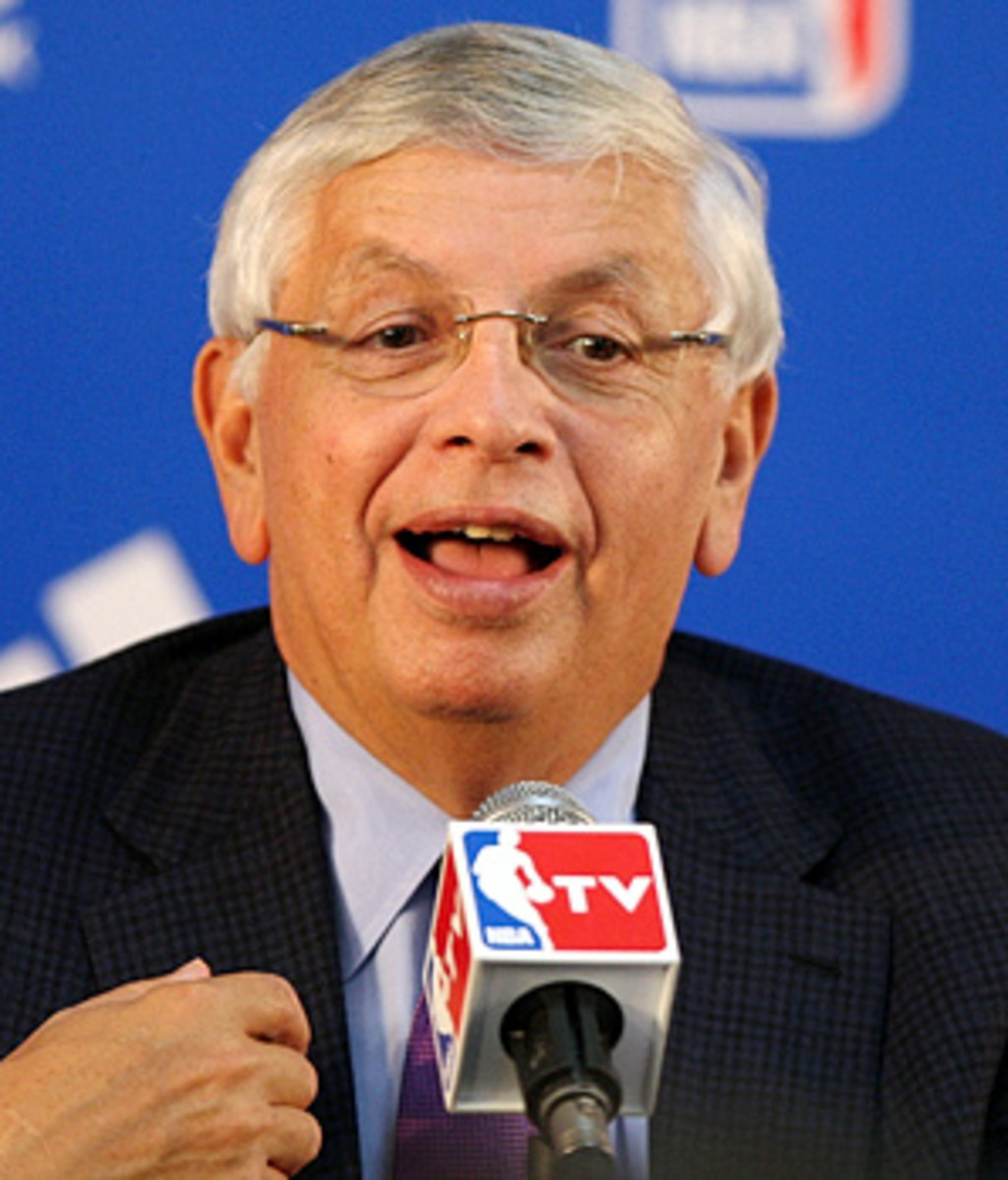
Stern needs to reverse course, sign off on Paul trade
The dark cloud started to form weeks ago, settling near the Manhattan intersection of 51st and 5th and rising rapidly up toward the NBA's offices in Olympic Tower. What if we have to do it?What if, as owner of the New Orleans Hornets, we have to approve a trade for Chris Paul?
Privately, league executives have sweated this moment, dreaded having the final say over the kind of landscape-changing deal they spent five locked-out months fighting to prevent. What if we have to trade him to the Lakers?What if he insists on the Knicks? These ulcer-inducing thoughts infected the minds of the NBA's top decision-makers, many of whom were pushing hard for someone, anyone, to take this mess off their hands.
Nobody did, of course.
The Hornets are a mediocre team with a superstar who doesn't want to be there, and they play in a bad arena in a city that, frankly, has never really supported them. You don't sell the Titanic with a big hole in it, and so the NBA needed to clean up the franchise that former Hornets owner George Shinn dumped in its lap last December before it could entice a credible buyer.
Paul's future was in David Stern's hands, and the commissioner wasn't about to let another player stick up his nose at another small market. On Thursday night, the NBA blocked a proposed three-team trade that would have sent Paul to the Lakers, Pau Gasol to Houston and Lamar Odom, Kevin Martin, Luis Scola, Goran Dragic and draft considerations to the Hornets.
An NBA spokesman said the league torpedoed the deal for basketball reasons, which is like saying Herman Cain dropped out of the race because he decided he didn't want to be president. No, with a push from a few small-market owners -- the Cavaliers' Dan Gilbert, in his (latest) wild rant, called the Lakers' potential acquisition of Paul a "travesty" and wondered when 25 of 30 teams would change their name to the Washington Generals -- Stern squashed this trade because he wanted to, because he determined long ago to stop letting players bully their way into big markets.
Hornets general manager Dell Demps didn't get equal value for Paul, but that was impossible. He was dealing from a position of weakness with a player who had all the leverage. Minnesota, Memphis or Philadelphia could have put better offers on the table than the ones Demps was sifting through, but none of them bothered to pick up the phone because they knew Paul wasn't committing to them long term. That left Demps with Golden State (but not Stephen Curry), the Lakers (but not Andrew Bynum), the Clippers (but not Eric Gordon) and the Celtics submitting offers that Demps needed a glass of water to swallow.
He picked one because he had to. He could not subject his team to the circus-like atmosphere Carmelo Anthony caused over four months in Denver or the wreckage LeBron James left in Cleveland in his wake. Demps is a good basketball man, schooled in the sacred San Antonio Spurs system. It was time to move on, to start over. He knew that. Paul couldn't be replaced, but Demps found a credible deal that would keep his team competitive now and give it pieces to grow in the future.
But the problem wasn't the trade so much as who Demps was trading with. Stern isn't against super teams; he's against players being the driving force behind them. And here was the 26-year-old Paul, a one-man booster shot capable of leading the Lakers to a title or two now while being the centerpiece of the post-Kobe Bryant transition. This is what Paul wanted, L.A. or New York, where Paul, Anthony and Amar'e Stoudemire could fulfill the promise they made to each other at Anthony's wedding in July 2010. Stern thought he had legislated against this kind of player-exerted pressure in the new collective bargaining agreement when he made extend-and-trade deals more difficult and cut deep into the long-term earnings of anyone who dared to leave the team that drafted him. He thought he did, but he didn't. Players like Paul and Dwight Howard can still hand over a list of teams they want to play for because the only bullet a team has -- daring a player to walk and give him tens of millions -- is too scary (see Cleveland, post-LeBron) to consider using.
So Paul played his hand and Stern exercised the authority many long believed he would. He's the president, after losing a battle over a bill, trying to ram his agenda home with an executive order. Stern didn't want to create another super team, but now he has managed to fracture three. Odom said he planned to skip the first day of training camp and wondered if Gasol would do the same. Half the Rockets' roster will show up Friday representing a team that doesn't want them. And after the season Paul will be an ex-Hornet and Demps might not get anything in return. That is if Demps, whom a source said was "stunned" by Stern's rejection, even bothers to stick around.
The only recourse for Stern is to flip, issue a mea culpa and sign off on the deal. The consequences are enormous if he doesn't. One of the smallest of small-market teams will crumble. Paul will wither under the daily scrutiny of an insatiable media that will feed on speculation about his future. An already lukewarm fan base will turn away in droves, making New Orleans Arena a hollow, depressing tomb. This is David Stern's mess now, and he is the only one who can clean it up.





